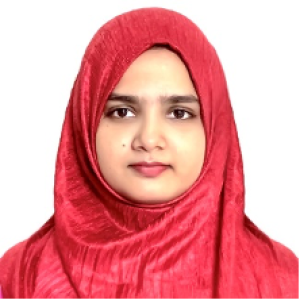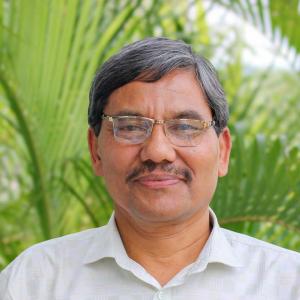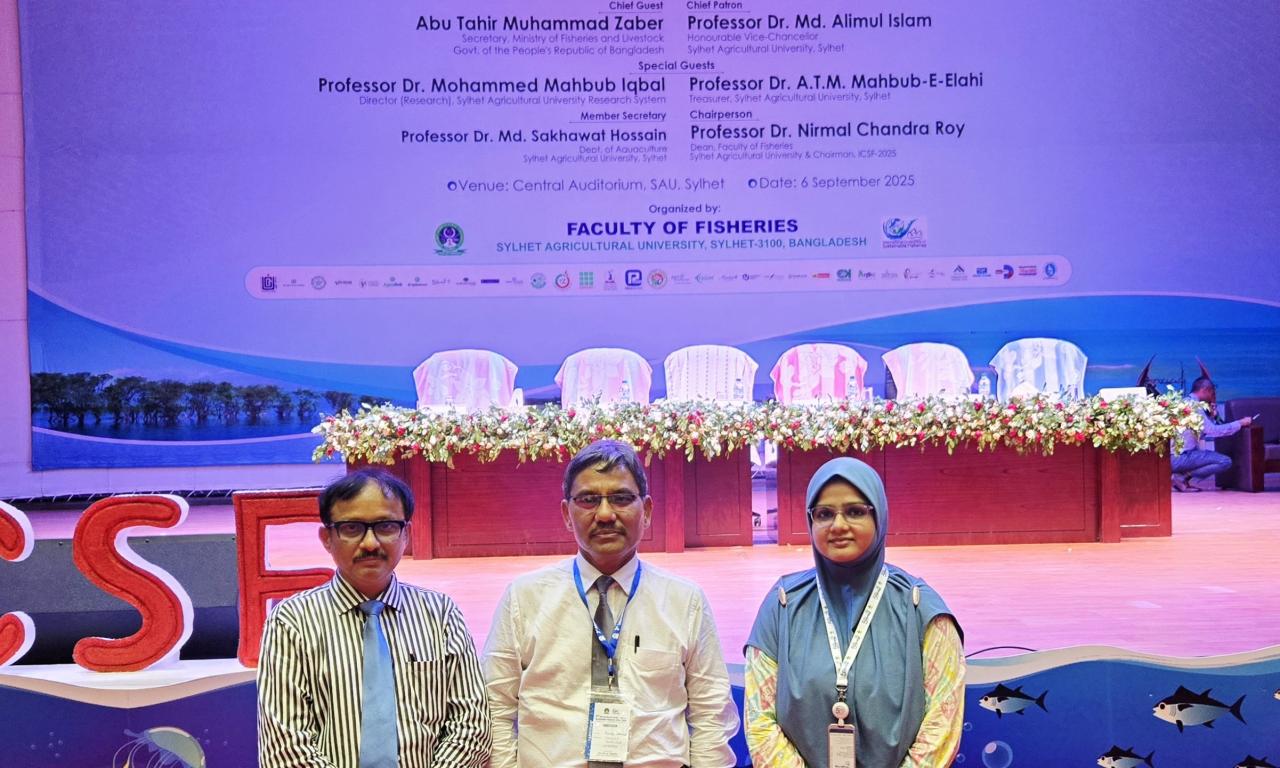
- WorldFish contributed to the 3rd ICSF 2025, sharing expertise on sustainable and resilient fisheries and aquaculture.
- The Haor Basin was highlighted as a model for climate-resilient, biodiversity-friendly, and community-based aquaculture development.
- Research on antimicrobial resistance (AMR) in aquaculture was recognized with the best oral presentation award, emphasizing the importance of prudent antimicrobial use in aquaculture.
- A multi-stakeholder panel and plenary session provided actionable recommendations for shaping the future of sustainable aquaculture in Bangladesh.
- The conference reinforced WorldFish’s commitment to transforming aquatic food systems through science, innovation, and inclusive partnerships aligned with CGIAR and WorldFish strategies.
WorldFish participated in the 3rd International Conference on Sustainable Fisheries (ICSF), held from September 5–7, 2025, at Sylhet Agricultural University, Bangladesh. The conference, inaugurated by Farida Akhter, Adviser at the Ministry of Fisheries and Livestock, provided a platform for experts, policymakers, and practitioners to share insights on fisheries and aquaculture in Bangladesh while contributing knowledge to the global dialogue on resilient and sustainable aquatic food systems. It was held under the overarching theme of ‘Innovative Solutions for Resilient Fisheries and Aquaculture' and highlighted the proposal to establish a Haor Research Institute in Sylhet, Bangladesh.
Advancing Knowledge and Innovation in Fisheries and Aquaculture
A wide range of technical sessions covered aquaculture and nutrition, aquatic animal health and pollution, fishing, post-harvest technology, seafood safety and quality, aquatic resource management and conservation, oceanography, climate change, blue economy, and livelihood, fisheries policy and governance. Experts presented innovative research on fish feed, farming systems, biosecurity, sustainable resource use, and climate adaptation, including the role of genetically improved species.
Dr. Benoy Kumar Barman, WorldFish Senior Scientist and Science Lead for Aquatic Farming Practices, delivered a keynote on unlocking the potential of aquatic food systems in the haor basin of Bangladesh. He highlighted the urgency of assessing livelihood, fisheries policy and governance, and called for stronger integration among the Ministries of Land, Fisheries and Livestock, Water Resources, and Environment, Forest and Climate Change to advance collaborative haor management and develop a holistic, inclusive rights-based legal framework for wetland management.
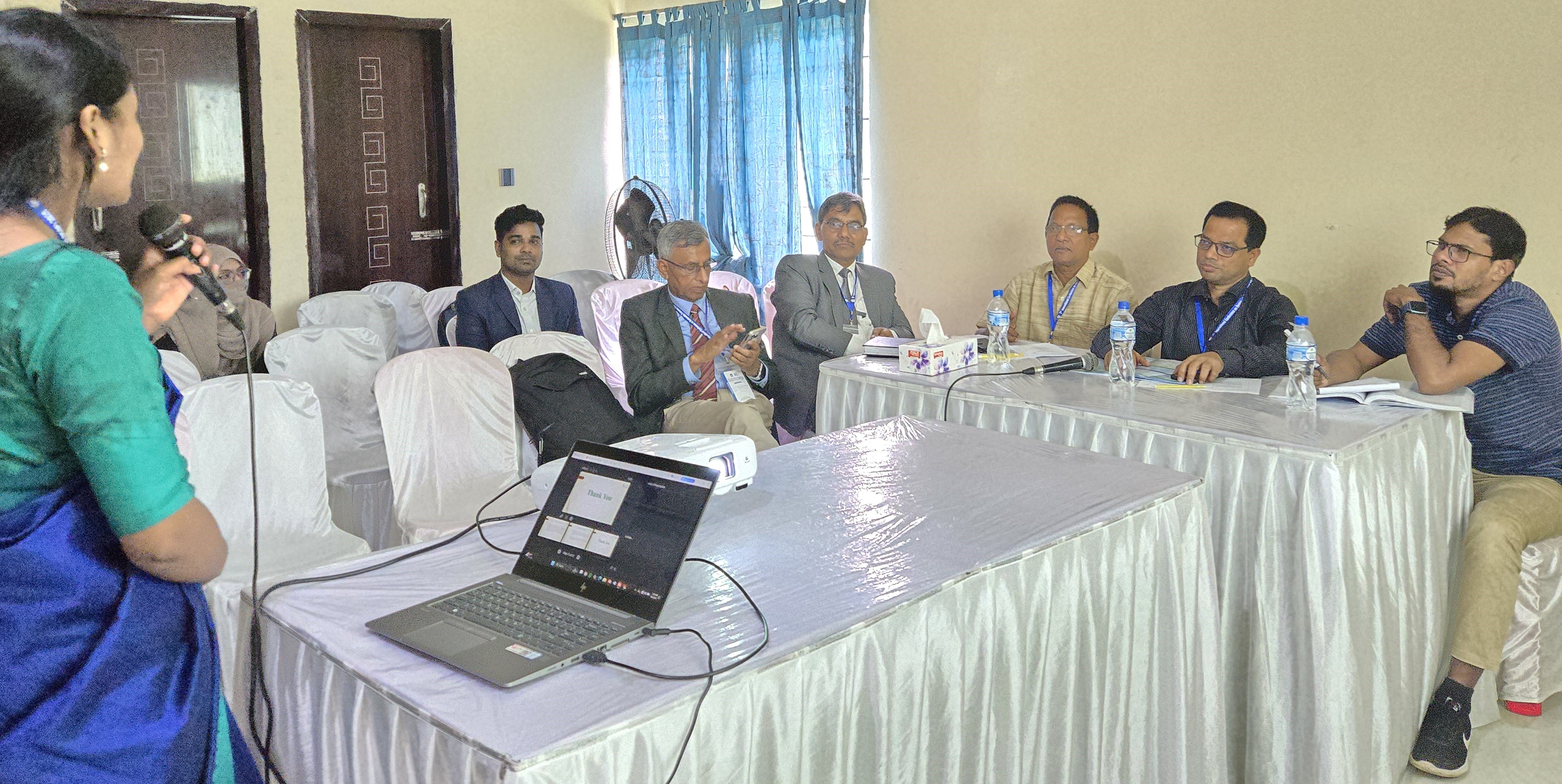
Research Excellence in Aquatic Animal Health with Best Oral Presentation Award
Dr. Sabrina Hossain, Post-doctoral Fellow, Aquatic Animal Health & One Health, spoke on antimicrobial resistance (AMR) characteristics in bacteria from commercial tilapia farms in Bangladesh. She highlighted potential AMR transmission risks and the need for prudent antimicrobial use in aquaculture. Her presentation was awarded the Best Oral Presentation in the aquatic animal health category.
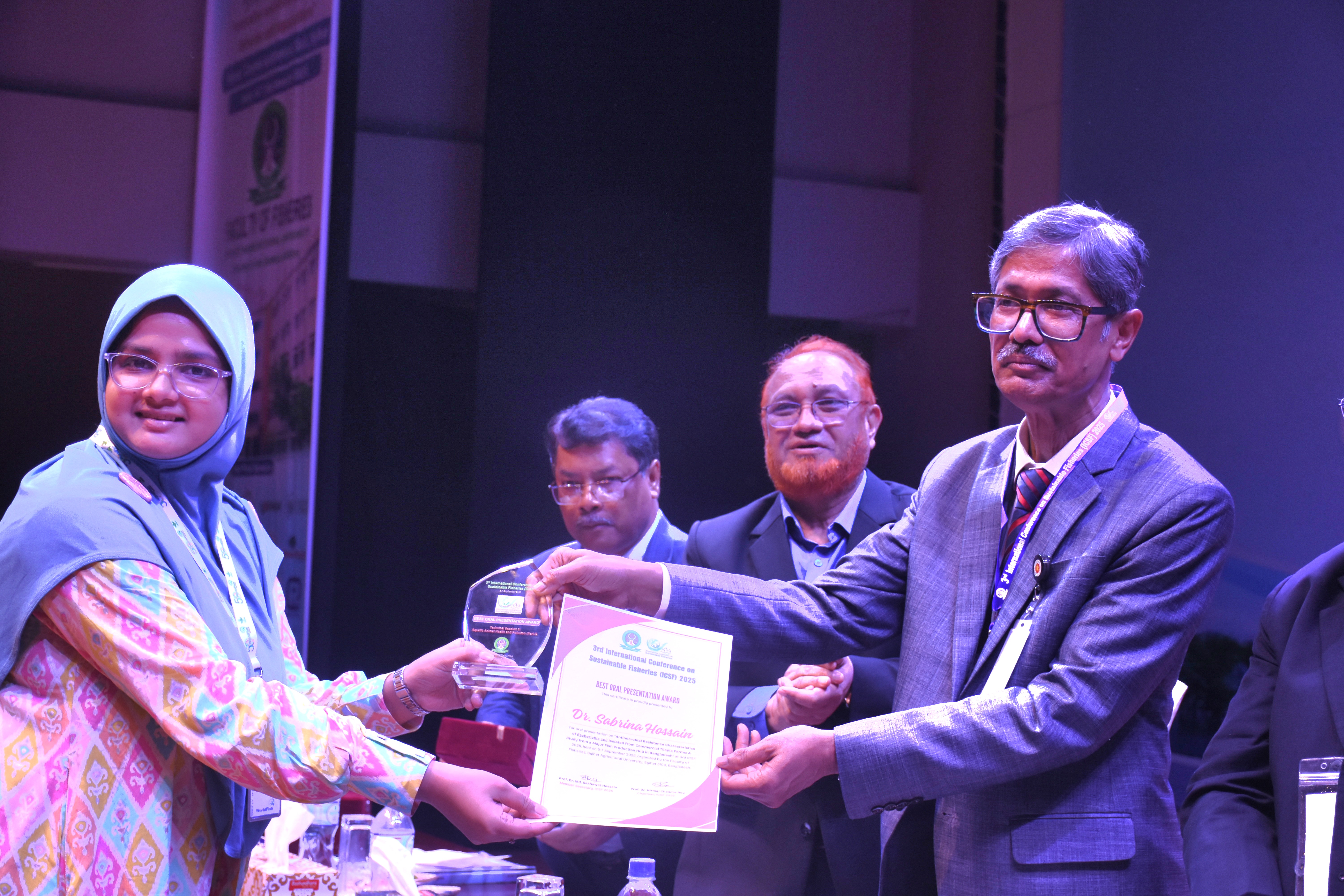
Actionable Recommendations for the Future of Aquaculture and Fisheries in Bangladesh
Dr. ATM Faruk-Ul-Islam, Country Representative of WorldFish Bangladesh, led a high-level plenary session and moderated a panel on the future of aquaculture and fisheries in Bangladesh. This session brought together stakeholders from government, academia, and the private sector, resulting in actionable policy recommendations to drive sustainability, strengthen governance, and foster innovation across the sector. He also moderated the summing up session of the key recommendations of the conference.
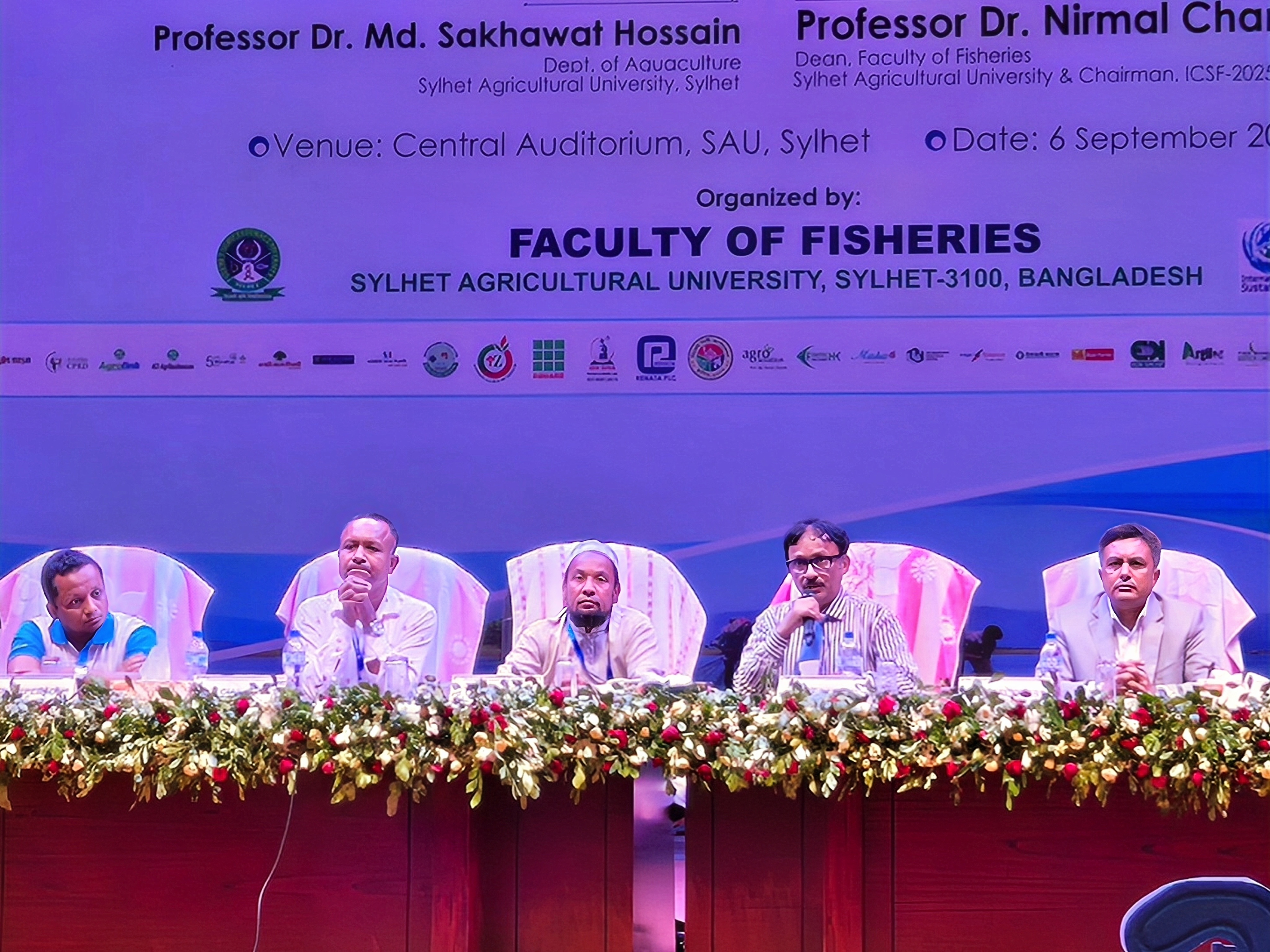
Recommendations included:
- Developing efficient (more specific fish targeted, more diverse type), cost-effective and safe fish feed, utilizing both plant and animal-based protein sources. Harmful ingredients are to be banned, and molecular quality assurance to be applied. Tax on some specific imported ingredients to be reviewed to reduce fish feed price for farmers.
- Strengthening aquatic animal health through vaccine development and stricter controls on insecticides and industrial effluents.
- Promoting automation and mechanization in fish farming using effective aeration, water mixing, pond parameter tracking, mechanized fish netting and fry-counting technologies.
- Expanding, monitoring, governing conservation efforts, including permanent sanctuary declaration, ensuring legal support, and research on migratory fish species like hilsa and small indigenous species particularly on breeding ground threats and movement pathways.
- Enhancing genetics and breeding programs of prioritized species with careful selection of population, DNA barcoding, selective breeding, using molecular techniques.
- Establishing a Haor Research Institute in Sylhet for biodiversity research, climate resilience, and ecosystem-based fisheries management. Multi-stakeholder conflicts to be resolved in haor management.
Through years of engagement with multiple projects and programs in Bangladesh, WorldFish is working to transform aquatic food systems through science, innovation, and inclusive partnerships. The conference reinforced the organization’s role in advancing sustainable fisheries and aquaculture while linking actionable recommendations to the broader CGIAR Science Program and WorldFish Strategy.
